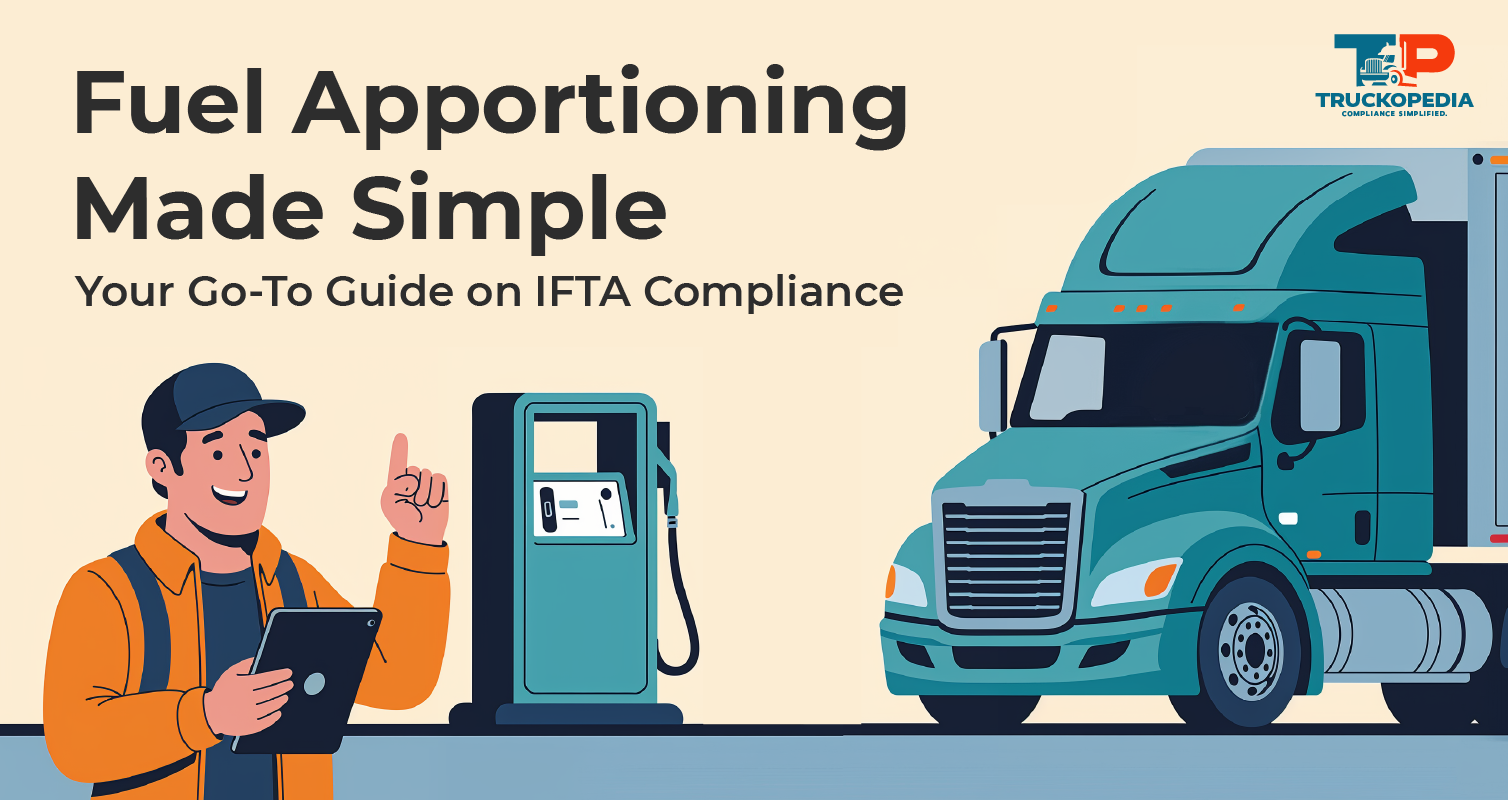Running a trucking business can become overwhelming with long hours, tight deadlines, paperwork, and more. Fuel apportioning is one of the trickiest parts in your compliance schedule that needs proactive attention. But, what’s fuel apportioning and its relevance in your trucking business? Let’s break it down step-by-step!
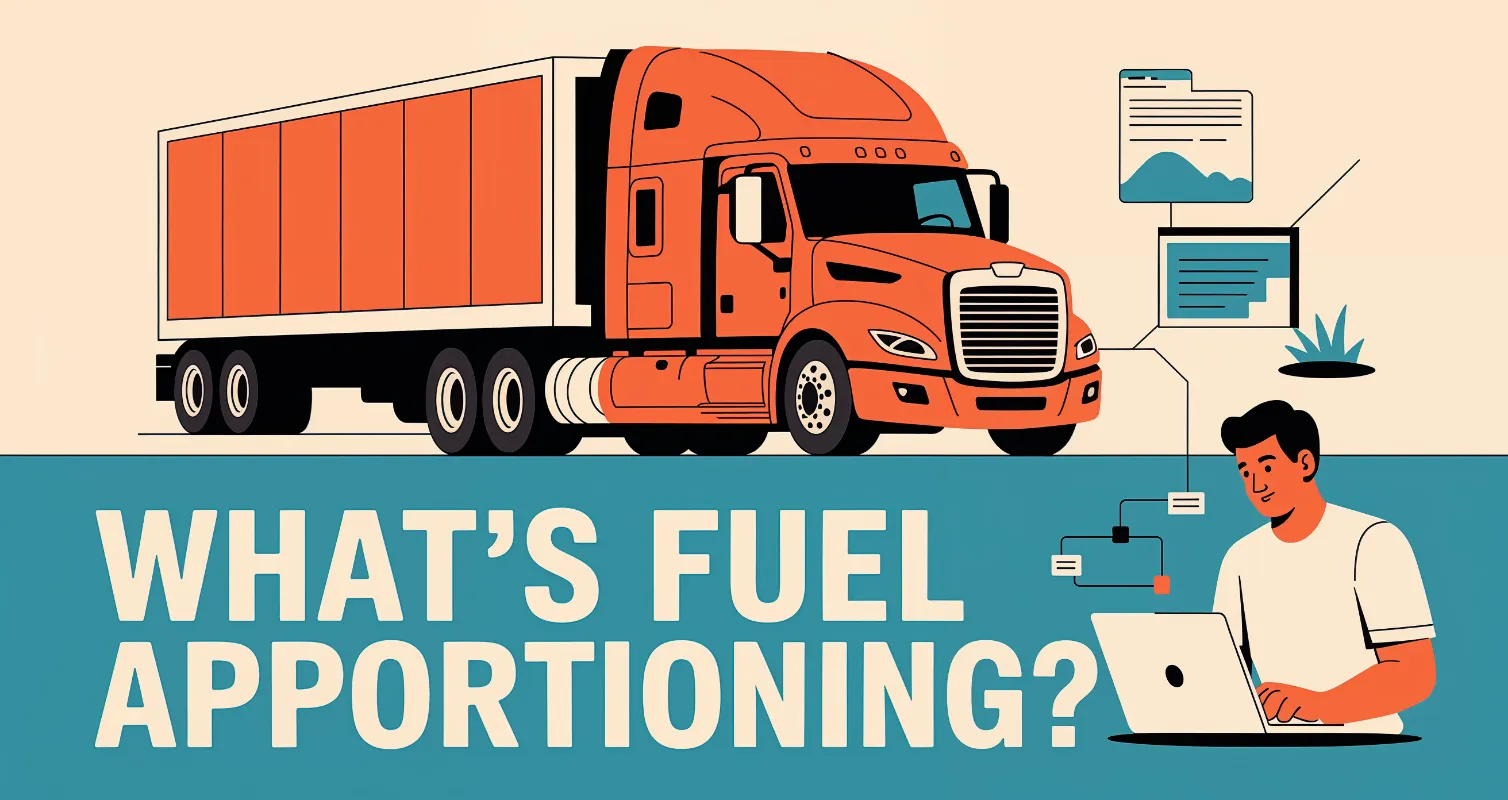
What’s Fuel Apportioning?
Fuel apportioning means splitting your fuel tax bill fairly among the states you actually drove in and not just where you topped up your tank. This is managed through the International Fuel Tax Agreement (IFTA), which simplifies paying fuel taxes across states for truckers.
How Fuel Apportioning Works?
Here’s how it works and the math:
- Track your total miles driven across all states.
- Keep your fuel receipts and total gallons used.
- Calculate your average miles per gallon (MPG) by dividing total miles by gallons.
- For each state, divide miles driven there by your MPG to get gallons used.
- Multiply gallons used by the state’s fuel tax rate to calculate what you owe.
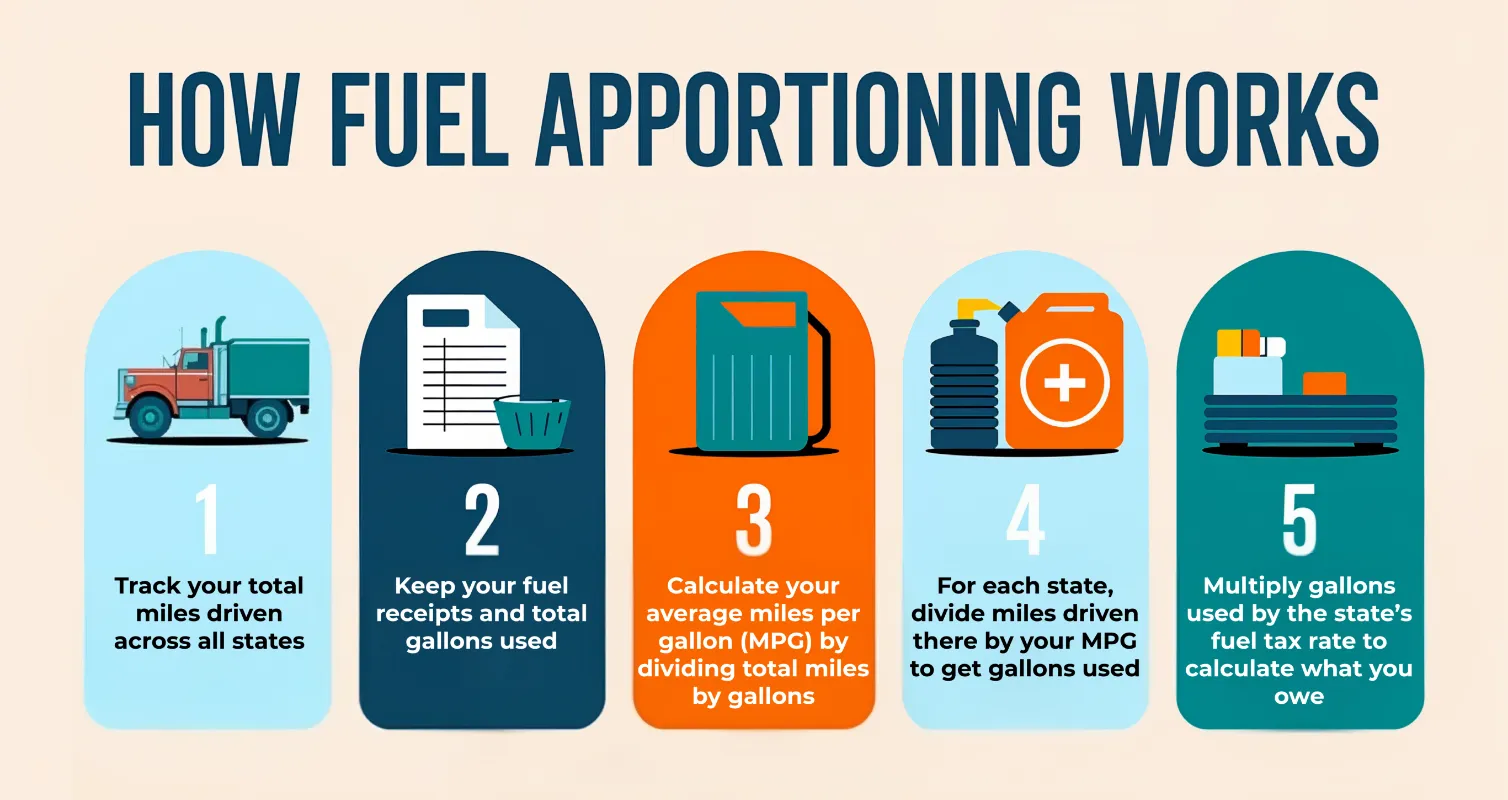
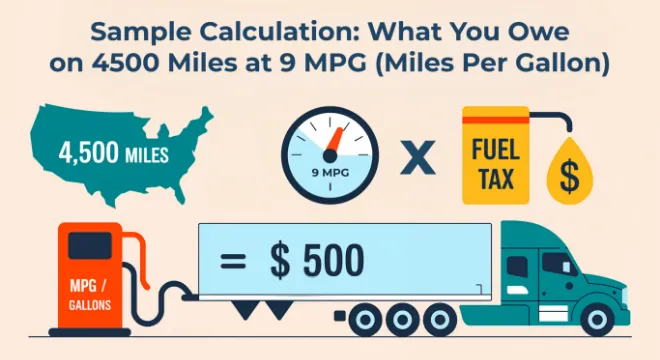
Sample Calculation: What You Owe on 4500 Miles at 9 MPG (Miles Per Gallon)
- Your MPG = 4,500 ÷ 500 = 9
- Miles by state: Illinois 1,500; Indiana 2,000;
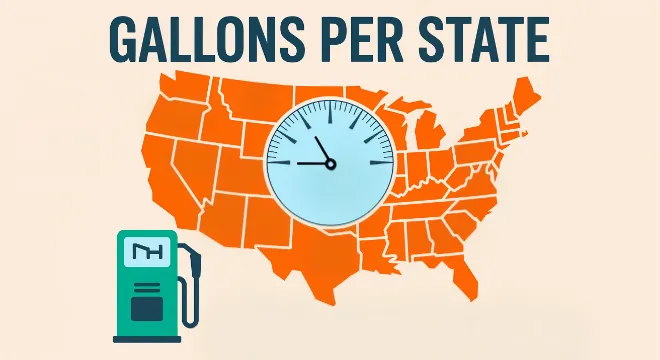
Gallons per state:
- Illinois: 1,500 ÷ 9 = 166.67
- Indiana: 2,000 ÷ 9 = 222.22
- Ohio: 1,000 ÷ 9 = 111.11
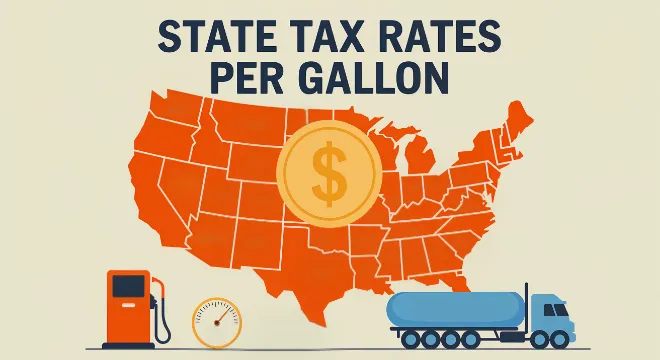
State tax rates per gallon:
- Illinois: $0.39
- Indiana: $0.33
- Ohio: $0.28
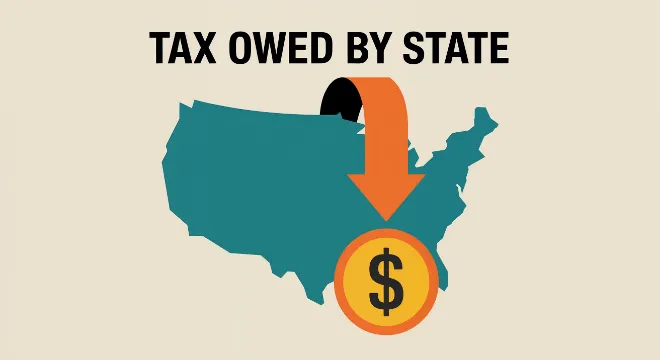
Tax owed by state:
- Illinois: 166.67 × $0.39 = $65.00
- Indiana: 222.22 × $0.33 = $73.33
- Ohio: 111.11 × $0.28 = $31.11
Total tax = $169.44
Then, you send your total tax payment to your base state where your truck’s registered which distributes it to the states you drove through.
Note: State tax rates are indicatory and can vary.
When Are IFTA Reports Due?
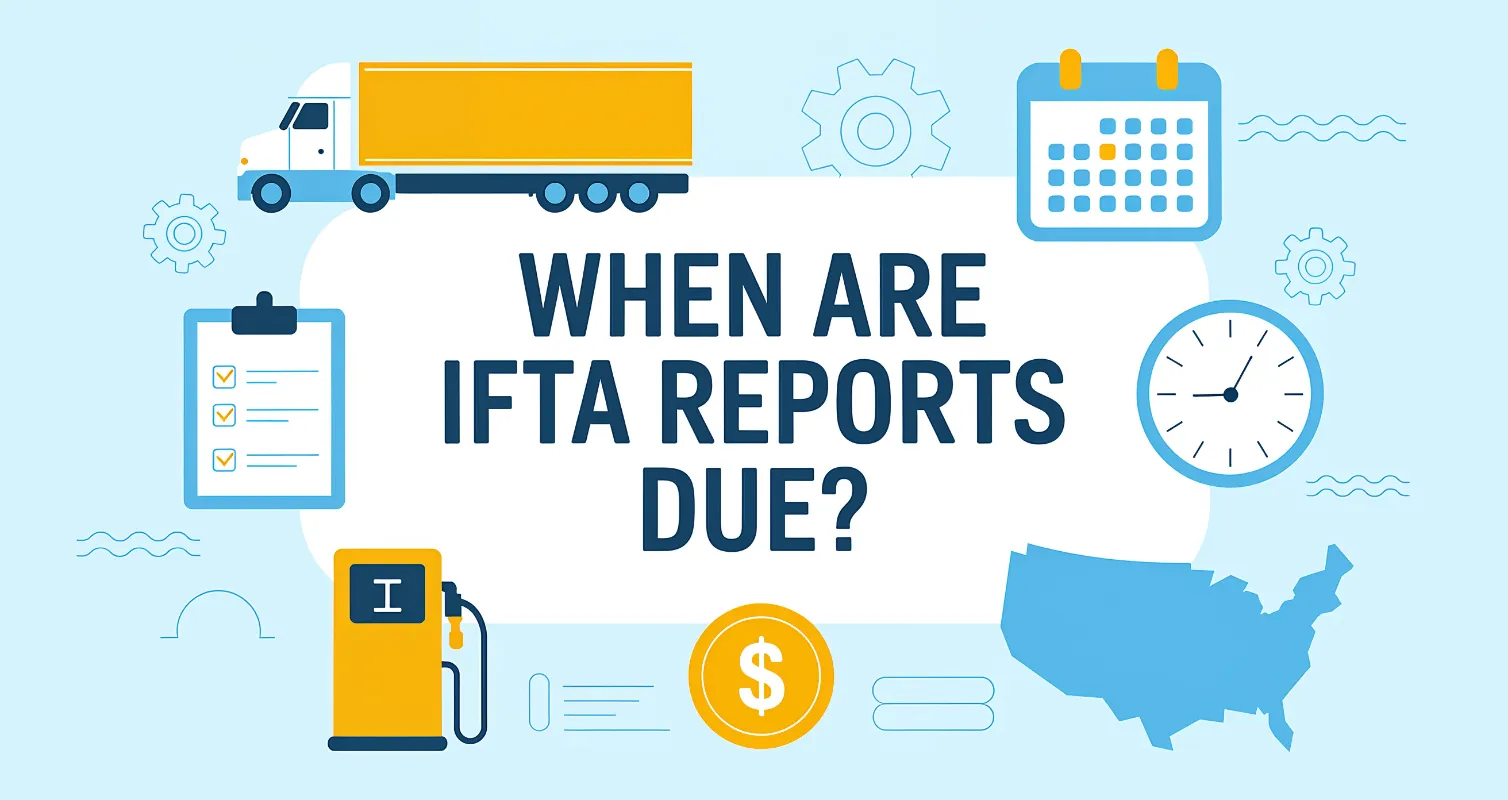
IFTA reports are due every quarter:
- Q1 (Jan–Mar): Due April 30
- Q2 (Apr–Jun): Due July 31
- Q3 (Jul–Sep): Due October 31
- Q4 (Oct–Dec): Due January 31
Why Timely & Accurate Reporting Matters?
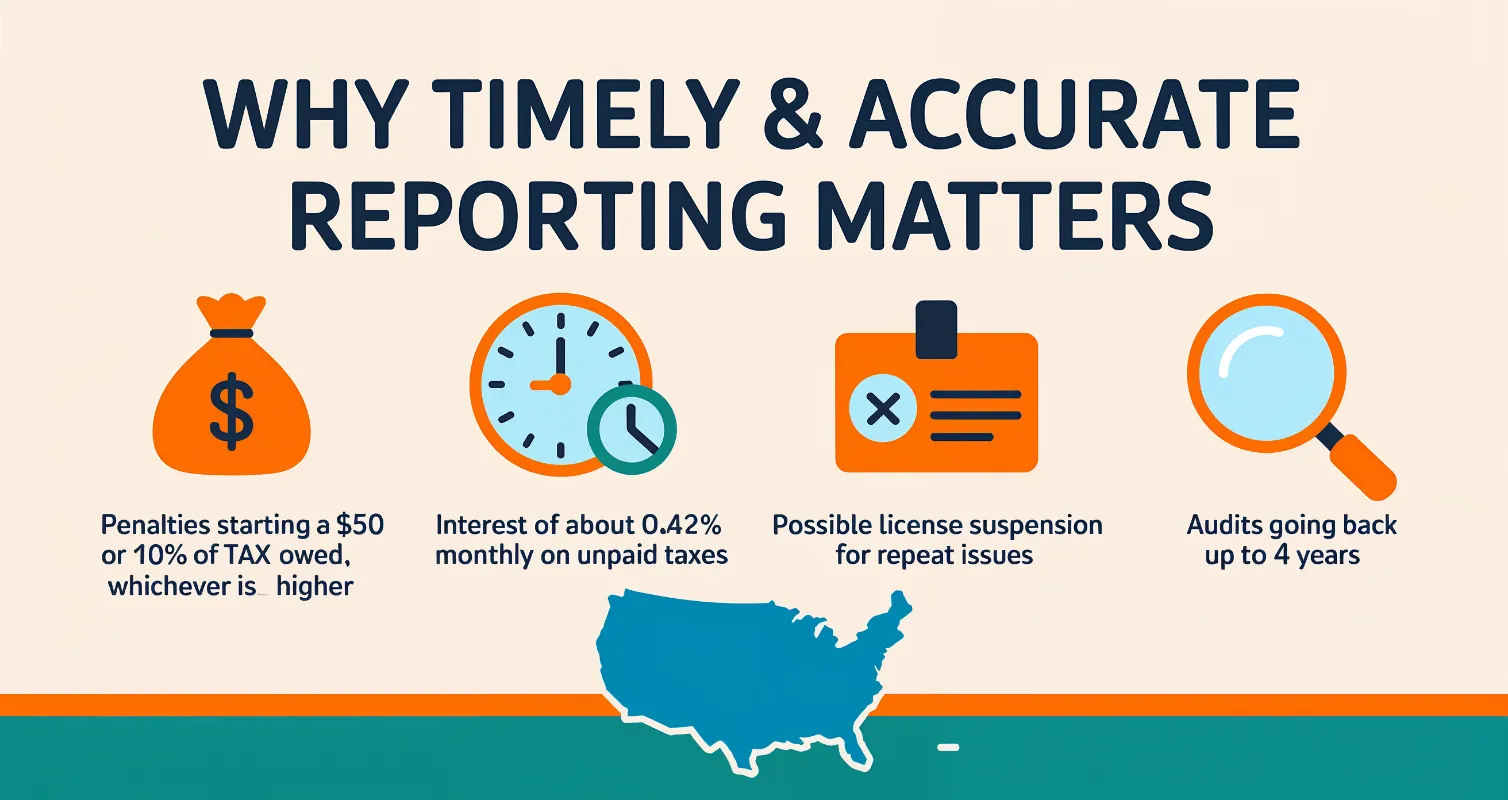
Late or inaccurate reports can lead to:
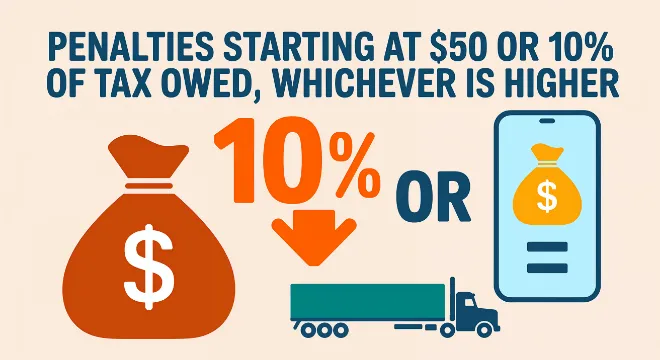
Penalties starting at $50 or 10% of tax owed (whichever is higher)
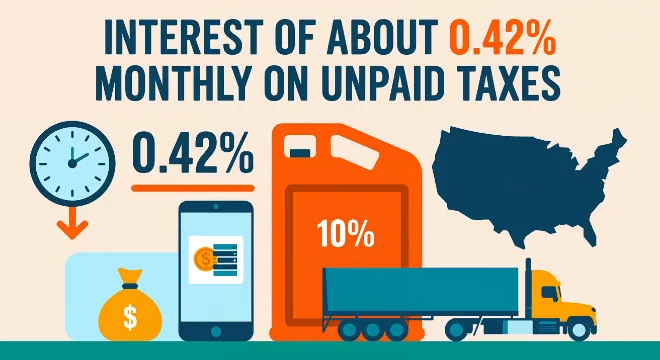
Interest of about 0.42% monthly on unpaid taxes
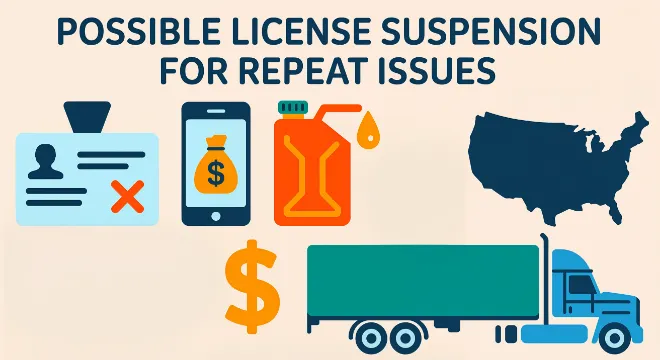
Possible license suspension for repeat issues
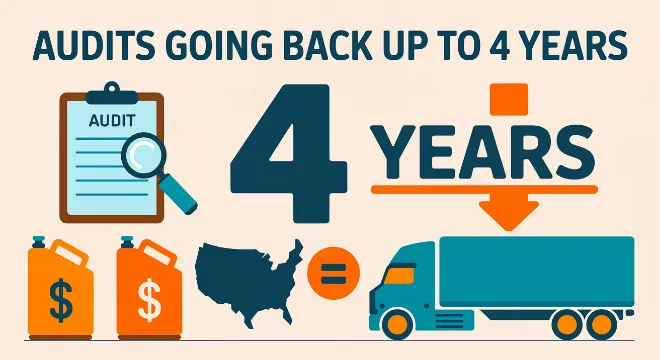
Audits going back up to 4 years
Pro Tips
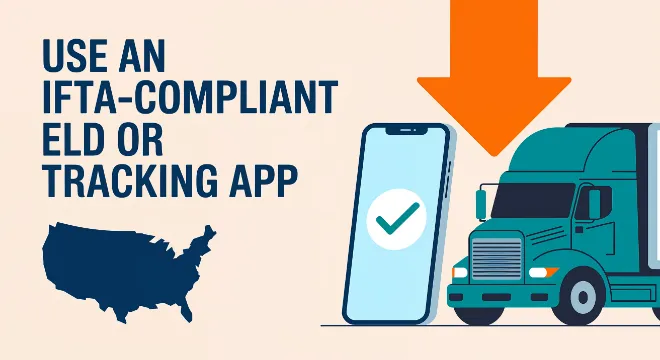
Use an IFTA-compliant ELD or tracking app like KeepTruckin and Motive to automate mileage tracking across routes and cut down manual errors.
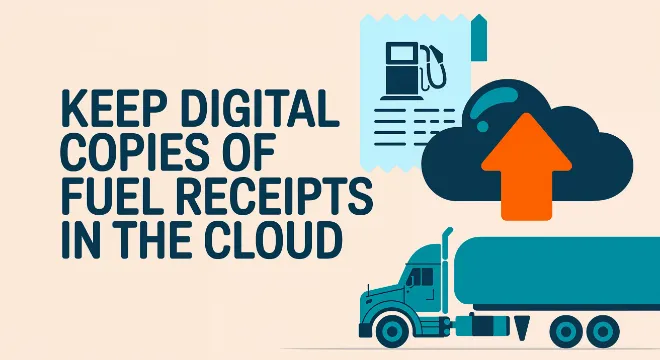
Keep digital copies of fuel receipts in the cloud so you never lose them under your seat, in a pile of papers, or elsewhere.
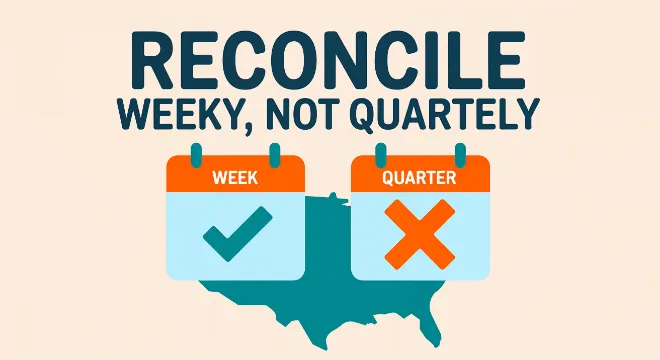
Reconcile weekly, not quarterly, and spend just 15 minutes a week to review miles & fuel logs.
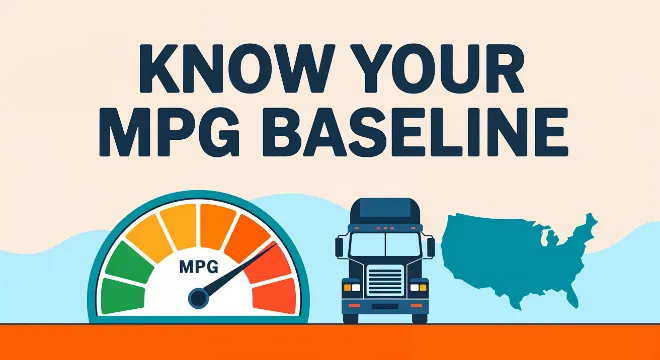
Know your MPG baseline as unreported fuel, missing miles, or sudden drops can raise audit flags
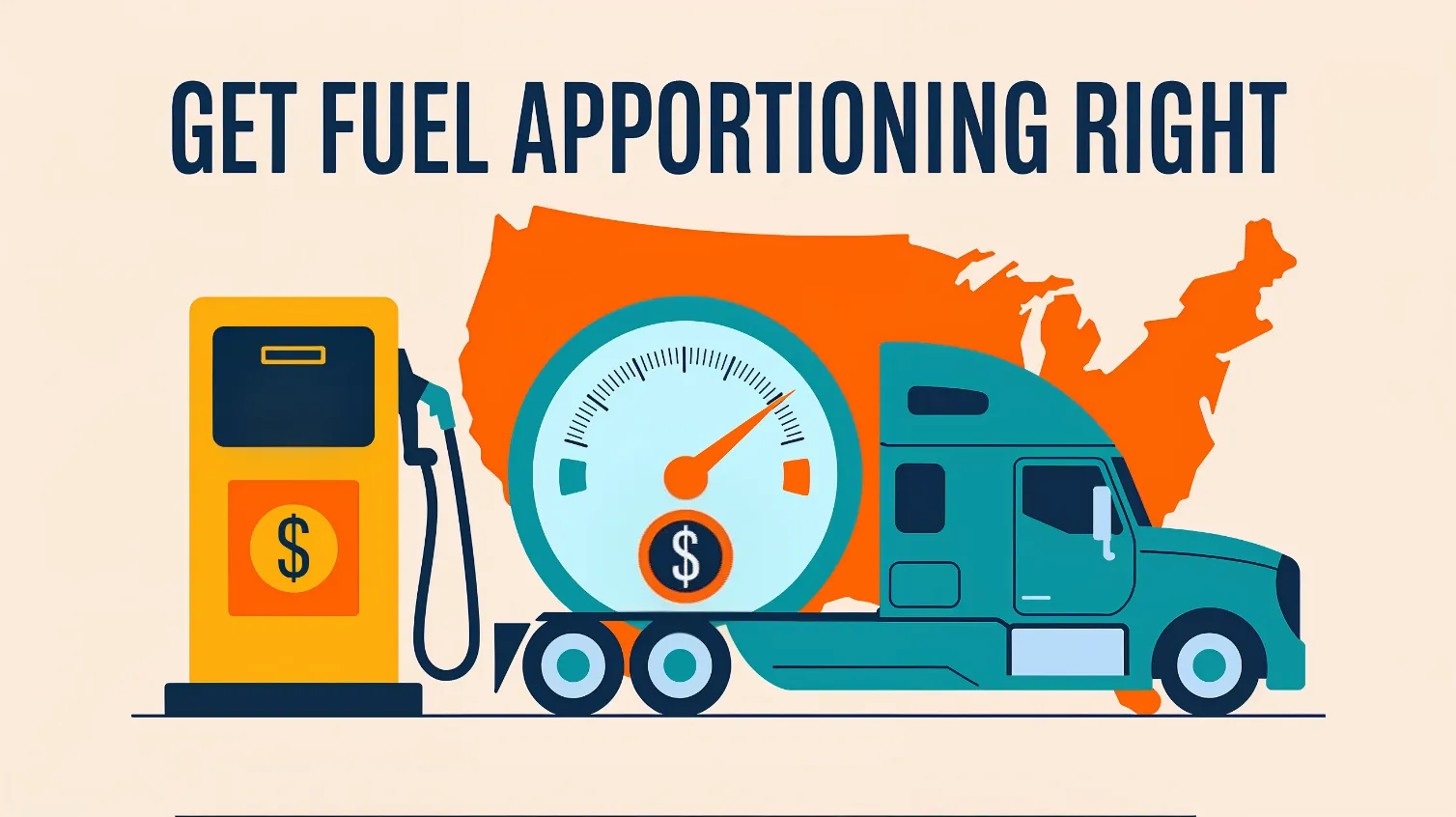
Get Fuel Apportioning Right
Fuel apportioning is manageable with the right tracking, deadlines, and tools. Got questions? Truckopedia’s got your back!
